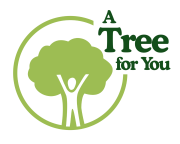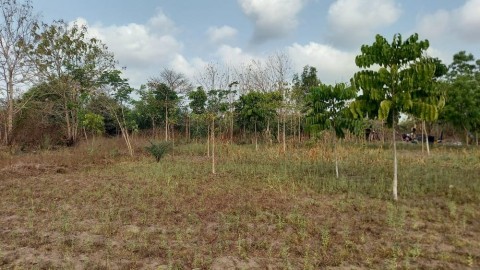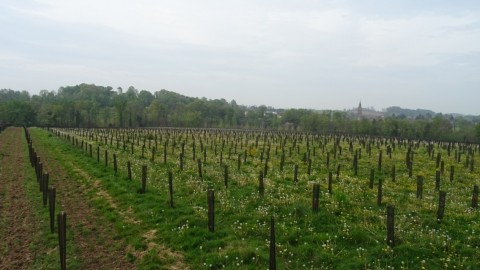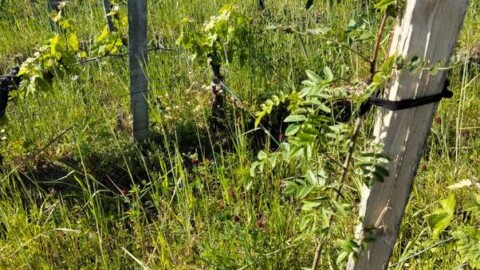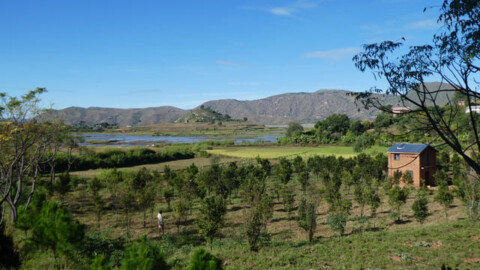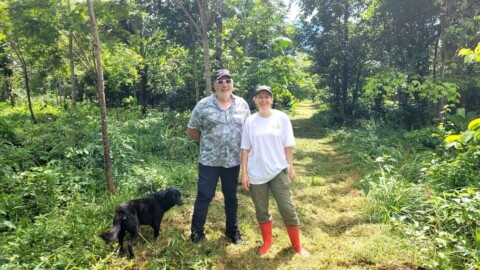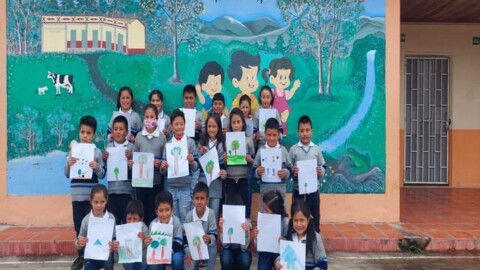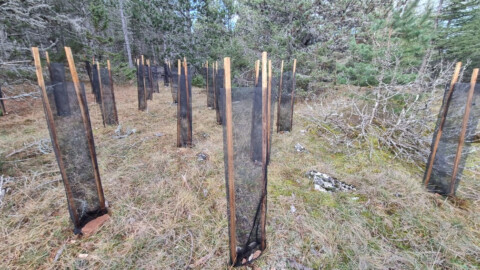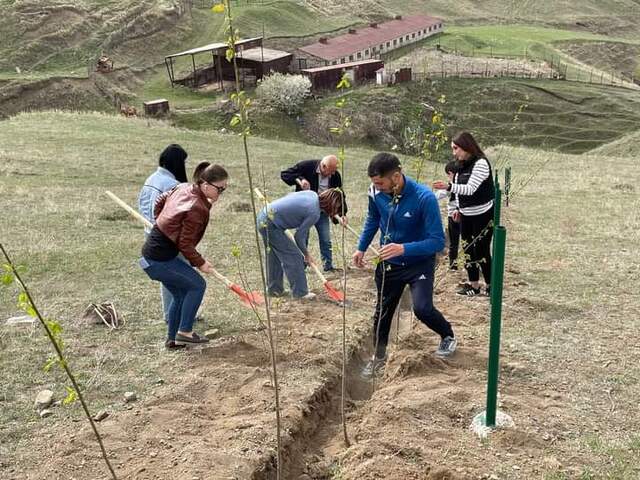
Shenavan, Armenia, October 2024
Launched in 2024, the community land rehabilitation project in Shenavan is one of the first in Armenia to promote sustainable agroforestry. It aims to restore seven hectares of degraded land while creating additional sources of income for the local community. The objective is to plant 22 000 trees on the project.
Project implementation and development
The project, initiated by local NGO Shen, is running this year in two phases: spring and autumn 2024. After receiving official approval from the Shenavan municipality at the beginning of the year, technical and scientific preparations, including soil studies ensured the project was properly implemented.
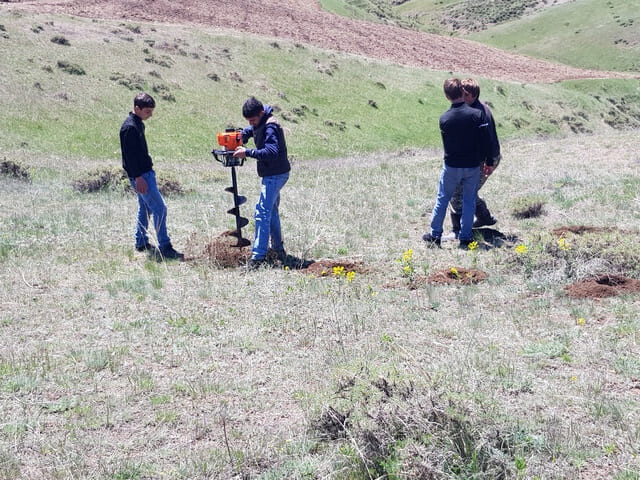
The plantation area has been divided into two sections: one dedicated to agriculture on two hectares and the other to reforestation on five hectares. A hedge of 1,500 poplars will be planted around the site to protect it from strong winds.
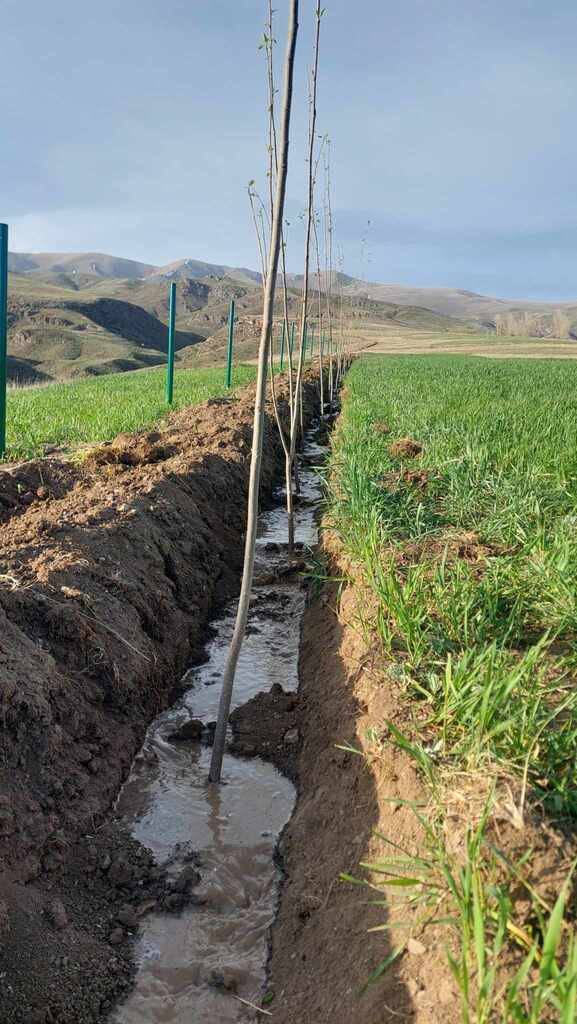
Site development and infrastructure
The following steps were taken to prepare the site for planting:
- installation of a complete fence around the planting area: 1,800 metres of fencing with cemented metal posts;
- construction of a drip irrigation network, connected to the village irrigation network;
- soil preparation: levelling, digging ditches, and preparing planting holes.
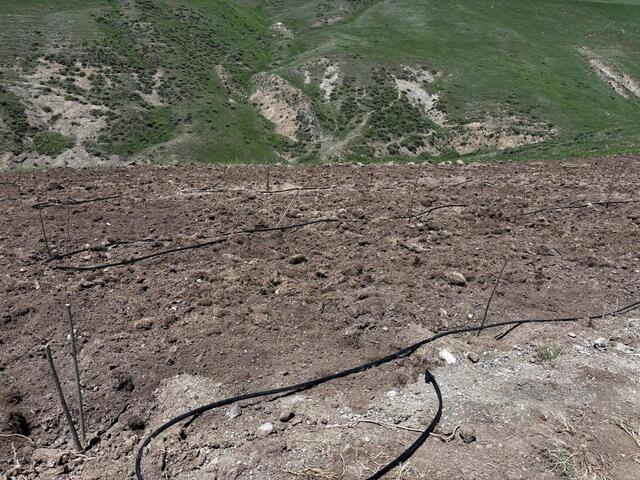
Community involvement
The success of the project depends on the strong involvement of the community. Eight residents of Shenavan, mainly young people and women, formed a working group. This group not only took part in the spring planting, but also undertook maintenance activities such as watering the crops and harvesting them. Their commitment, supported by NGO Shen, ensures the continued success of the project.
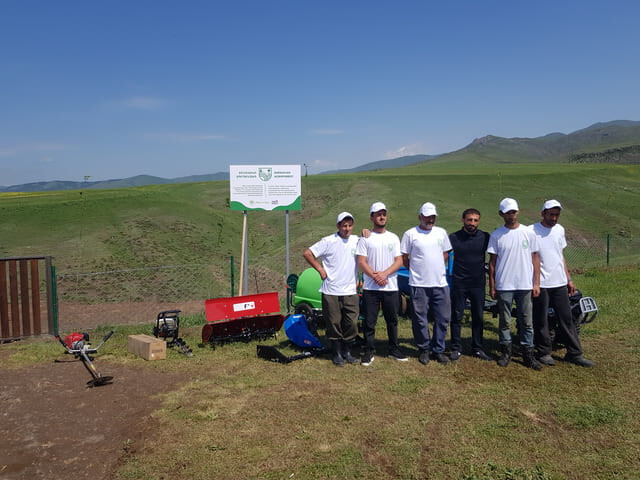
Agricultural and forestry planting
Despite the difficult weather conditions in the spring of 2024, efforts have led to significant progress:
- in the agricultural area: 1,800 hazelnut trees (Corylus avellana) were planted over two The spaces between the rows will be cultivated with annual crops (oats, beans) to generate additional income and improve soil health.
- in the forest area: five hectares have been reforested with a wide variety of native trees and shrubs, including oriental oak, common ash, and Litvinov birch, as well as wild fruit species.
To date, 7,500 saplings have been successfully planted. Further planting will continue until spring 2025.
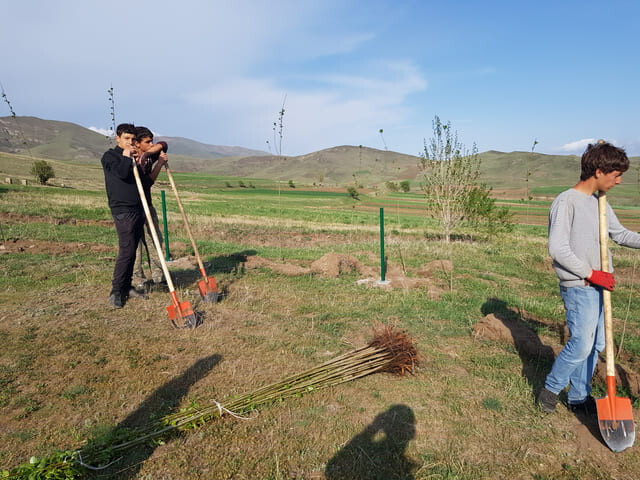
Building local capacity
The project is not limited to planting. Shen NGO has also organised training for local inhabitants in the maintenance of agroforestry systems and berry growing. This training seeks to ensure the project remains sustainable by equipping the community with the skills needed to manage and develop the agroforest.
Next steps
While still too early to assess the overall impact of the project, initial results are encouraging. The rooted trees should continue to develop over the coming seasons, and the site is set to become a demonstration model for agroforestry production in Armenia.
Conclusion
The Shenavan community land rehabilitation project, made possible thanks to your contributions, is transforming this region in a sustainable way. By incorporating innovative agroforestry practices and mobilising local people, this project aims not only to restore local ecosystems but also open up new economic opportunities for the community. We thank you warmly for your continued support and look forward to keeping you informed of future developments.
